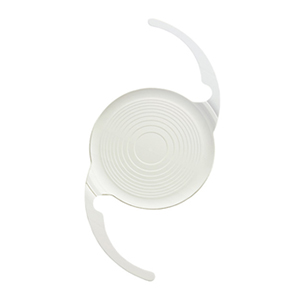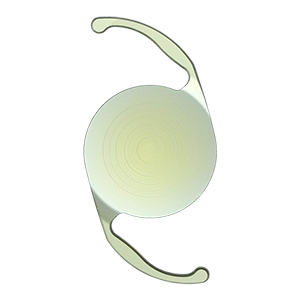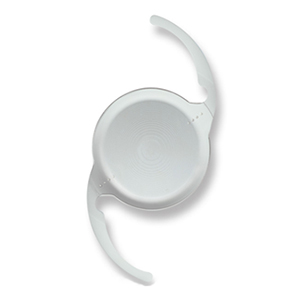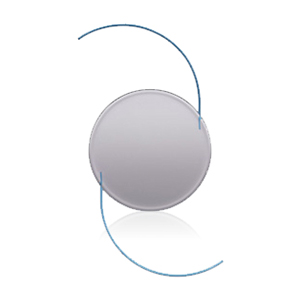
Stahl Vision has been providing a wide range of vision care services to the Dayton area for over 20 years!
Stahl Vision
4235 Indian Ripple Rd, Dayton, OH
Cataract Surgery Implants (IOLs) — Choices to Fit Your Lifestyle
During cataract surgery or refractive lens exchange (RLE), the lens of your eye which has become cloudy over time will be replaced with an artificial Intra-Ocular Lens (IOL). Traditionally this has been done with a standard or monofocal implant lens which is covered by your insurance. But now you have choices in your implant that may help you see better without the need for lenses.
For patients that have a lot of astigmatism, we now have astigmatism correcting implants as well—these are known as Toric Implant Lenses. You would not dream of having your glasses or contacts made without correcting astigmatism, because you could not see well without the astigmatism being corrected. Well good news, now your astigmatism can be corrected with your implant lens. This means clearer sharper vision without your glasses or contacts for distance vision.
 Most of us have experienced the frustration of trying to read or see things up close as we aged past our fifties. We now are offering the 4th generation of bifocal/multifocal implant lenses that allow you to see far, near, and even at intermediate like desktop computers, all without your glasses! These advanced lenses have multiple and extended focal points to allow you to see more like when you were younger. These high-tech implants lenses also correct for astigmatism, like toric lenses. You now have options for how you see after your surgery.
Most of us have experienced the frustration of trying to read or see things up close as we aged past our fifties. We now are offering the 4th generation of bifocal/multifocal implant lenses that allow you to see far, near, and even at intermediate like desktop computers, all without your glasses! These advanced lenses have multiple and extended focal points to allow you to see more like when you were younger. These high-tech implants lenses also correct for astigmatism, like toric lenses. You now have options for how you see after your surgery.
Advanced Lifestyle Implant Lenses (IOLs)
Bifocal implants and astigmatism correcting implant lenses (IOLs)

Advances here at Stahl Vision and Eye Laser and Surgery Center allow us to help you regain your near vision like when you were younger!
Advanced Lifestyle Implants (IOLs) now enable you to see better without your glasses after cataract surgery. For better distance vision, a Toric lens corrects astigmatism allowing you to see better for distance without glasses. For better near and distance vision, bifocal/multifocal implant lenses enable you to see far, near and intermediate as well! Newer 4th generation bifocal implants such as Tecnis® Symfony Intraocular Lens Implant (IOL), the Tecnis® Multifocal Synergy Lens Implant (IOL), and AcrySof Panoptix® Intraocular Lens Implant (IOL) have made improvements over prior generation implants improving intermediate vision and minimizing night vision disturbance. Drs. Stahl & Knowles will be able to suggest which lens will help you achieve your vision correction goals after your surgery and minimize your dependence on glasses or readers!
About the Symfony Lens and Synergy Multifocal Implant (IOL)
The Symfony (pronounced “symphony”) and Tecnis® Synergy Implant Lenses are 4th generation bifocal implant lenses that use advanced diffractive optics work to create both distance and near focal points, helping patients to see both near and far without corrective lenses.
These are extended depth of focus lenses, the newest and first of its class. The Symfony has good distance vision, very good intermediate vision, and fair near vision. While the Synergy now also improves the near vision even more.
The Symfony lens was the first multifocal implant approved by the FDA to correct for astigmatism. It is similar to Eyhance Lens and Vivity Lens. It has been our experience that patients who choose the Symfony or Synergy lenses experience less night glare, halos and starbursts and better over all night vision than prior generation bifocal and trifocal implant lens options.
Strengths: good distance, good intermediate and fair near, less night vision disturbance than with prior generation lenses.
Weaknesses: Some glare/halos with night driving that improves over time, may need readers for very small print.

About the Acrysof PanOptix® Implant Lens (IOL)
Like Symfony® Lens and Tecnis® Multifocal Lens, the Acrysof PanOptix® lens uses high tech diffractive optics to create focal points at distance, intermediate and near. The PanOptix® is a trifocal design and an improvement over the older Acrysof ReSTOR design. In comparison to older generation designs the PanOptix® has better intermediate vision and less night vision disturbance.
The PanOptix® implant lens, like the Symfony lens and Tecnis Multifocal lenses, is FDA approved to correct for astigmatism as well.
Strengths: good distance, good intermediate and near vision, less night vision disturbance than with prior generation lenses.
Weaknesses: Some glare/halos with night driving that improves over time, night vision in dim conditions may not be as good as with some other lens designs.

About the Toric Plus Implant Lens (IOL)
Some patients have a lot of astigmatism, it is something they have had their whole life. This astigmatism may have made it difficult to wear contact lenses, and difficult to correct fully correct vision with glasses. Astigmatism is where the shape of the eye is out of round, more shaped like the American football. Unless astigmatism is corrected, it makes it difficult to see at distance and near!
Fortunately, now we can correct your astigmatism with a Toric Plus Lens, or astigmatism correcting implant lens. The result is less dependence on glasses for tasks that require clear distance vision such as driving, sports, or seeing the television. Unless you choose a bifocal/multifocal implant lens you will still need inexpensive reading glasses for near, but “readers” are much less trouble and expense than having to wear bifocals.
Strengths: good distance vision, good intermediate vision, corrects astigmatism, can wear over-the-counter readers
Weaknesses: will need “readers” for near vision

If you decide to have an Advanced Lifestyle bifocal implant lens or Toric Intra-Ocular Lens (IOL), our staff will review your questions and fully explain any additional fees related to the lens implant that you might be responsible for. Most insurances including Medicare cover the cost of the cataract surgery, the surgical facility fee for cataract surgery, and anesthesia fees, but not the cost of Advanced Lifestyle bifocal implant lens or Toric Implant Lens.
If you are having Refractive Lens Exchange, all of these fees are included in one global fee. Our staff will be pleased to review any costs and discuss special financing options with approved credit, should you decide that an Advance Lifestyle Bifocal Implant Lens or Toric Implant Lens is the best choice for you.
Standard Monofocal Lens Implants
Aspheric or Monofocal Lens Implants

Here at StahlVision we use Aspheric implant lenses as our standard, insurance covered, monofocal design. An aspheric implant is specifically designed to reduce the visual disturbances caused by the optical aberrations found in ordinary lens implants. This reduces the tendency to see “glare” that you might experience with basic lens implants and thus can offer improved sharpness and contrast, especially at night.
Monofocal implant lenses only correct distance or far vision, such as that required for driving. Monofocal implant lenses do not usually correct intermediate or “arms length” vision, similar to viewing computer screens, and do not correct near vision as required for reading. Additionally, monofocal implant lenses do not correct for astigmatism, thus more than 70% of patients will still need to wear glasses for best vision either distance or near.
Patients who wish to have the best quality of distance vision, especially in dim or dusky conditions, may wish to consider a monofocal aspheric implant lens, if they are comfortable with wearing glasses after their surgery. Aspheric implant lenses usually cost slightly more than a basic lens implant, but here at Stahl Vision we do not charge patients anything extra. All of the implants our eye surgeons use in our facility are the more advanced aspheric types.
Our best eye surgeons Dr. Brian Stahl and Dr. James Knowles specialize in Laser eye surgery: LASIK and PRK, Refractive Lens Exchange, and Cataract Surgery. Our Dayton, Ohio eye center puts Stahl Vision Center, Laser Vision Correction of Dayton, and Eye Laser and Cataract Surgery Center all under one roof conveniently located for patients from Sidney Ohio, Springfield Ohio, Urbana Ohio, Dayton Ohio, Cincinnati Ohio, West Chester Ohio, Eaton Ohio, Xenia Ohio, Jamestown Ohio, Franklin Ohio, Springboro Ohio, Waynesville Ohio, Lebanon Ohio, Mason Ohio, Oxford Ohio, and Middletown Ohio. Please call Stahl Vision at 937.643.2020 to schedule an appointment to learn more about Cataracts and Refractive Lens Exchange with Advanced Lifestyle Bifocal Implant Lenses or for a complete eye examination.

